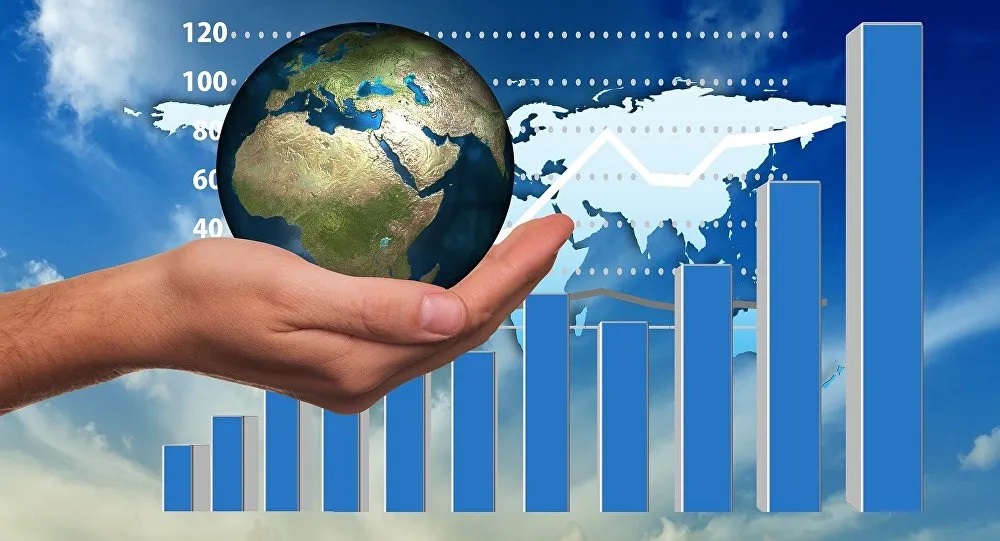International relations play a crucial role in shaping the global economy. The interactions between nations, whether through diplomacy, trade agreements, or conflicts, have far-reaching implications for economic stability, growth, and development. This article explores the ways in which international relations influence the global economy, highlighting key factors such as trade, investment, and geopolitical tensions.
Trade Agreements and Economic Growth
Trade agreements are among the most significant ways that international relations impact the global economy. These agreements, such as the North American Free Trade Agreement (NAFTA) and the European Union (EU), facilitate the exchange of goods and services between countries by reducing tariffs and other trade barriers. By promoting free trade, these agreements can lead to increased economic growth, job creation, and consumer benefits.
For example, the establishment of the EU has created one of the largest single markets in the world, allowing for the seamless movement of goods, services, capital, and people across member states. This has not only boosted trade within the EU but also strengthened its economic position globally.
Foreign Direct Investment (FDI)
International relations also affect the flow of foreign direct investment (FDI), which is crucial for economic development. FDI involves investment from one country into another, typically in the form of business ventures, infrastructure projects, or real estate. Positive diplomatic relations between countries can enhance investor confidence and lead to increased FDI.
For instance, stable political relations between the United States and China have historically resulted in substantial FDI flows between the two nations, fostering economic growth and development. Conversely, strained relations can deter investment, as seen in the case of US sanctions on Iran, which have significantly reduced FDI inflows.
Geopolitical Tensions and Economic Stability
Geopolitical tensions, such as conflicts, territorial disputes, and political instability, can have profound effects on the global economy. These tensions can disrupt trade routes, increase oil prices, and lead to market volatility, ultimately impacting economic stability.
The ongoing conflict in Ukraine, for example, has had significant economic repercussions worldwide. Sanctions imposed on Russia by Western countries have disrupted energy supplies, leading to higher fuel prices and inflation. Additionally, the conflict has caused uncertainty in global markets, affecting investor confidence and economic growth.
International Organizations and Economic Policy
International organizations like the International Monetary Fund (IMF), World Bank, and World Trade Organization (WTO) play a vital role in shaping the global economy through their policies and interventions. These organizations work to promote economic stability, reduce poverty, and facilitate international trade.
The IMF, for instance, provides financial assistance and policy advice to countries facing economic crises, helping to stabilize their economies and restore growth. The WTO, on the other hand, oversees global trade rules and resolves trade disputes, ensuring a level playing field for all member countries.
Frequently Asked Questions
1. How do trade agreements affect the global economy?
Trade agreements reduce tariffs and trade barriers, promoting the exchange of goods and services between countries. This leads to economic growth, job creation, and consumer benefits.
2. What is foreign direct investment (FDI), and why is it important?
FDI involves investment from one country into another, typically in business ventures, infrastructure projects, or real estate. It is crucial for economic development as it fosters growth and creates jobs.
3. How do geopolitical tensions impact the global economy?
Geopolitical tensions can disrupt trade routes, increase oil prices, and cause market volatility, ultimately affecting economic stability and growth.
4. What role do international organizations play in the global economy?
International organizations like the IMF, World Bank, and WTO promote economic stability, reduce poverty, and facilitate international trade through their policies and interventions.
5. How can strained international relations affect foreign investment?
Strained relations can deter foreign investment by creating uncertainty and reducing investor confidence, as seen with US sanctions on Iran.
Conclusion
In conclusion, international relations have a profound impact on the global economy. Trade agreements, foreign direct investment, geopolitical tensions, and the role of international organizations are all critical factors that shape economic outcomes. Understanding these dynamics is essential for policymakers, businesses, and investors as they navigate the complexities of the global economy.




